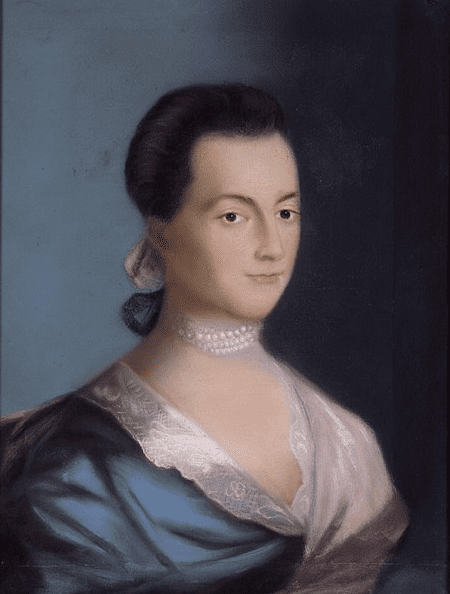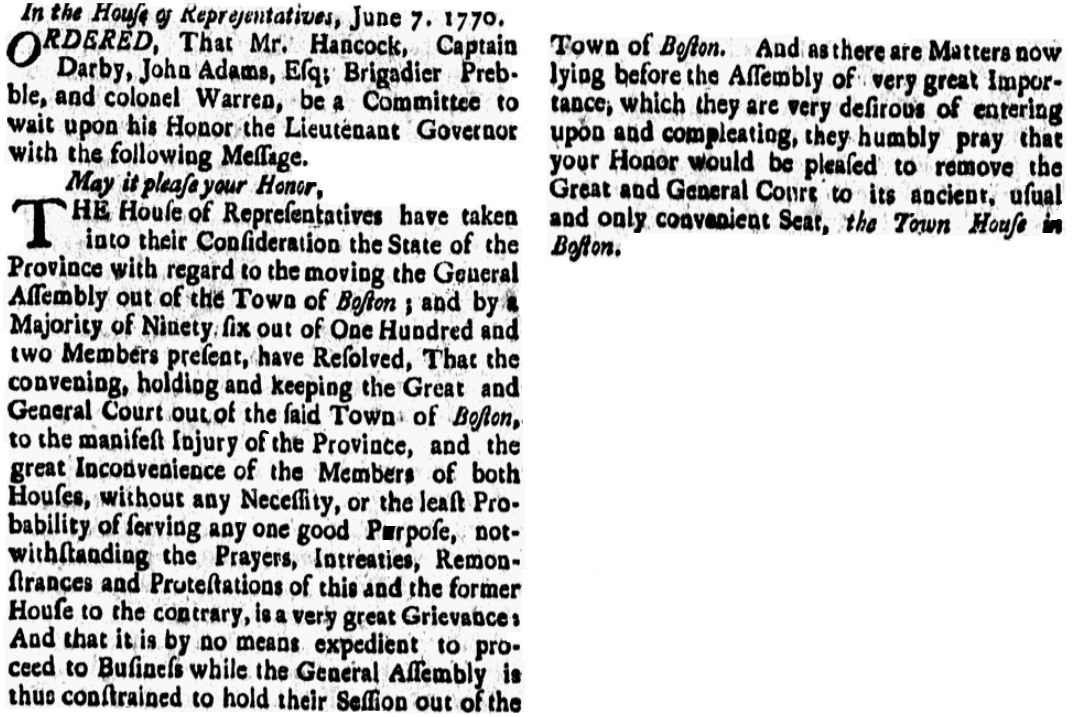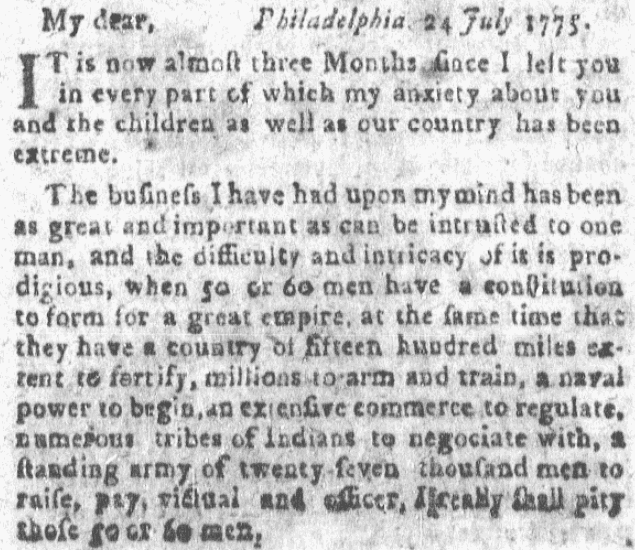Introduction: In this article, to help celebrate Women’s History Month, Jane Hampton Cook gives context to Abigail Adams’s letter to her husband John, a delegate at the Continental Congress, to “Remember the Ladies.” Jane, the former White House webmaster for President George W. Bush, is a presidential historian and the author of nine historical books. She is a consultant for the Women’s Suffrage Centennial Commission. Her works can be found at janecook.com.
The theme of this year’s Women’s History Month is “Valiant Women of the Vote.” This year focuses on those who contributed to women winning the right to vote, which celebrates its 100th anniversary this year.
Abigail Adams is one of these valiant women. In a private letter dated 31 March 1776, Abigail asked her husband to “Remember the Ladies” when making a new code of laws establishing the United States of America. Thanks to GenealogyBank’s Historical Newspaper Archives, I found newspaper articles that give us fresh context to her letter, which later became a battle cry of sentiment for women suffragists.

What did the reading public know about John and Abigail Adams by 1776? The residents of New England read John Adams’s name in newspaper articles about the happenings in Boston. As the Connecticut Gazette published on 15 June 1770, Adams was elected within the House of Representatives in Massachusetts to a special committee that asked the lieutenant governor to move legislative meetings from Cambridge back to Boston.

One news article I found was quite concerning. Abigail’s name and John’s name were published in London newspapers in September 1775 and then later in New England. The reason? The British military had intercepted one of John’s letters to Abigail and another to James Warren. Worse, they had published them. Their private words were suddenly made public.
The Boston Gazette, or, Country Journal republished the London article including Adams’s letters. A British officer explained why Adams’s letters were printed:
“…that you may see the real Intentions of those Miscreants who have misled His Majesty’s Subjects in North America to commit themselves in Acts of open Rebellion… there is undoubted Proof that both these Letters are from Mr. John Adams, a Lawyer of Boston and one of the Delegates in the Continental Congress.”
Then the article printed the letter from John to Abigail:
“It is now almost three Months since I left you in every part of which my anxiety about you and the children as well as our country has been extreme.
“The business I have had upon my mind has been as great and important as can be intrusted to one man, and the difficulty and intricacy of it is prodigious, when 50 or 60 men have a constitution to form for a great empire…”

The publication of this letter in January 1776 in a Massachusetts newspaper gives additional context to Abigail’s “Remember the Ladies” letter three months later. Not only did she express her opinion that women needed to be better protected and represented under a new constitution, but she also knew that her letter could be intercepted and published. Yet, she courageously gave her husband an opinion on an issue that challenged cultural norms. She didn’t let the fear of publication prevent her from giving her frank opinion or reveal the strategy of declaring independence.
In that letter she wrote to John on 31 March 1776, she said:
“I long to hear that you have declared an independancy – and by the way, in the new Code of Laws which I suppose it will be necessary for you to make, I desire you would Remember the Ladies, and be more generous and favourable to them than your ancestors. Do not put such unlimited power into the hands of the Husbands. Remember all Men would be tyrants if they could. If particular care and attention is not paid to the Ladies, we are determined to foment a Rebellion, and will not hold ourselves bound by any Laws in which we have no voice, or Representation.”
The rebellion of the ladies did not come in 1776, but come it did. Women in the 1800s and early 1900s remembered Abigail as they called on legislators to give women the right to vote. Their efforts paid off when the 19th Amendment to the Constitution was ratified in August 1920.
